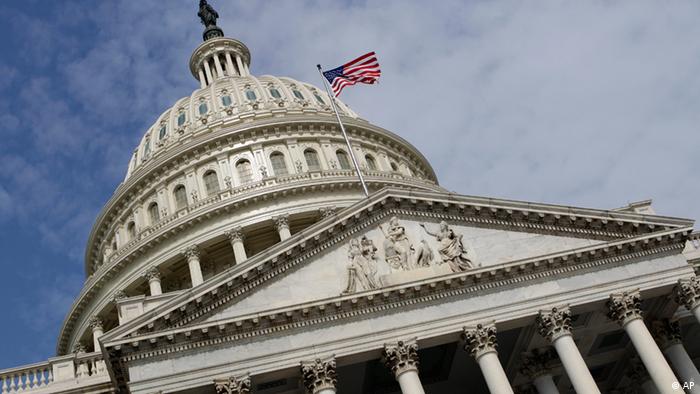Politicians in Washington have one more day to agree on a 2013 budget. Weekend negotiations failed to produce the desired bipartisan compromise, meaning Congress will reconvene on New Year's Eve for a final shot.
Both houses of Congress will convene later on Monday, their last chance to either agree on a 2013 budget, accept the current pre-arranged agreement disliked by Republicans and Democrat alike, or find a way to delay rushing over the so-called "fiscal cliff."
"There are still significant differences between the two sides," Democrat Senate leader Harry Reid said on the floor after closed talks with top Republican Senator Mitch McConnell.
The "fiscal cliff" is a term commonly used to describe two events combined: the expiration of a string of tax cuts implemented by President George W. Bush and extended once already by his successor Barack Obama, and the introduction of a string of severe cuts in spending. Economists have said these simultaneous measures could push the US economy back into recession; they are currently scheduled to come into effect on Tuesday.
Politicians in Washington built this "cliff" for themselves during similar talks last year, deliberately creating a situation deemed so undesirable that it would force progress in the next round of talks.
Obama's Democrats, who control the Senate but not the House of Representatives, and the opposition Repbulicans both want to stop many of the cuts and almost all of the tax increases.
How much is too much?
The main battleground is tax for the wealthiest in the country. The Democrats want those earning more than $250,000 (189,000 euros) a year to pay more taxes, while Republicans are thought to be holding out for a higher threshold. A recent, shelved proposal from the lower house Republican leader John Boehner would have suggested a figure of $1 million.
"We're still left with a proposal they've given us that protects the wealthy and not the middle class. I'm not going to agree to that," Reid said, without going into specifics.
Reid's Republican counterpart McConnell, meanwhile, said on Sunday that he had called in Vice President Joe Biden in his search for consensus.
"I'm willing to get this done, but I need a dance partner," McConnell said.
Barack Obama had previously pledged to push for a vote on a proposal he would favor if two-party talks failed. In an NBC interview on Sunday he sought to pressure the opposition, saying their "overriding theme" seemed to be protecting wealthy taxpayers.
In the event that no deal is reached in time, almost all US taxpayers would face higher rates. Obama said in his "Meet the Press" appearance that in the worst case scenario, he would work to reverse the rate increases.
msh/bk (AFP, AP, Reuters) DW DE


No comments:
Post a Comment